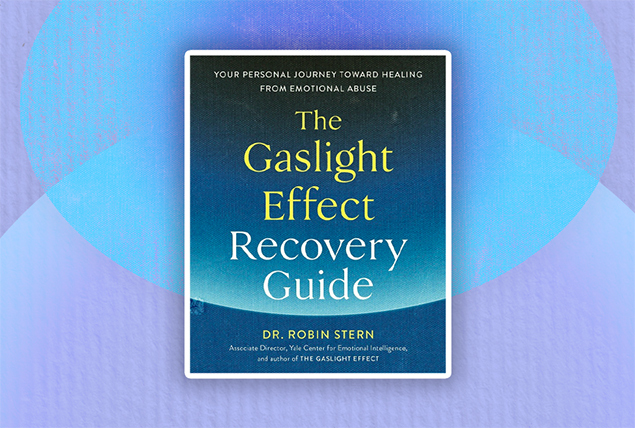5 Signs Your Partner Is Gaslighting You

Editor's note: Some names have been changed to protect survivors' privacy.
Have you ever asked yourself, "Am I losing my mind?"
We know abuse in intimate relationships isn't always physical. Coercion, stonewalling and emotional cruelty are all forms of nonphysical abuse, which can do as much harm as a physical strike.
Gaslighting—a term shortlisted for Oxford University Press' Word of the Year in 2018—refers to a specific form of psychological abuse where the perpetrator causes the victim to doubt their sanity or grasp of reality. The word originates from "Gas Light," a 1938 play by Patrick Hamilton, and its subsequent movie adaptations, in which a man alters small details, such as dimming the gas lights, before insisting it's all in his wife's imagination.
One of the reasons gaslighting is so harmful lies in its insidious nature, escalating slowly and often causing victims to distrust their perceptions. Gaslighting can be incredibly difficult to identify, especially when you, as its victim, are in its clutches, but you can watch out for these telltale signs.
You feel unsafe
Your body is a source of immense wisdom if you're able to tune in and listen to it.
"Your gut might be telling you," said Mel Riley, a senior accredited psychotherapist based in Wolverhampton, England. "You might be either really worked up and anxious with your fight-or-flight response switched on or else shut down and depressed."
This is your body's way of letting you know something is deeply wrong, and it is often the first sign you notice.
You misremember details more often than usual
Occasional misunderstandings are a part of all relationships. However, a person gaslighting you deliberately plays on the imperfect nature of memory to convince you events didn't happen in the way you remember.
A classic gaslighting tactic is for the perpetrator to say something and then deny they said it, or vice versa, to insist they told you something when they did not. If this type of seemingly innocent misunderstanding happens often, it can be a sign something is amiss.
"Start documenting," said Marilyn Devonish, a relationship coach, therapist and author in Watford, England. "If you've had a conversation and you're seeing this pattern, write down what you said and date it. Then you can read back through your notes and trust your own handwriting."
Self-trust is perhaps the best antidote to the feeling of losing your mind brought on by sustained gaslighting.
Your environment changes or your items move
Just like the husband in "Gas Light," an abusive partner might subtly change details in your environment or move objects to confuse and disorient you.
"He'd hide my house keys and convince me I'd misplaced them," said Emma, a gaslighting survivor.
If you suspect this is happening, one way to notice the pattern is to narrate actions out loud.
"You might say, 'I've just put my phone on the dining room table,' if your phone keeps disappearing," Devonish suggested. "Then if it's not there later, you know you put that phone on the dining room table."
Small steps like this can help you get a better handle on what's happening.
You feel as though nobody else would want you
"Gaslighters start as charmers who sweep you off your feet and make you feel special," said Fiona, a gaslighting survivor. "We got engaged after six weeks, and it's only in retrospect I see how fast that was."
This phenomenon is known as love bombing, and when it inevitably ends, the sensation of loss can make you feel desperate to return to the person's good graces. This is when the devaluation stage of the abuse cycle begins.
"Often, gaslighting is to erode someone's confidence," Devonish said. "You might feel as though you're lucky they put up with you."
Abusers deliberately play on this insecurity.
"Even from the early days, he would tell me that women like me were 10 a penny, whereas men like him were a rare breed," said Hannah Roper, a survivor in Waterlooville, England, and founder of The Female Creative, a business coaching service for women.
"Look out for comments about them being better than you, whether in physical attributes or personality traits," she added.
"The danger is that the abuser becomes your world," Riley said. "You trust them implicitly and don't necessarily look for a second opinion. Especially beware if your partner paints an 'it's us against the world' picture or suggests you are too damaged, broken or crazy for anyone else to love you."
Your partner hurts you, then calls you the aggressor
If you've ever called your partner out for bad behavior only to wind up apologizing for upsetting them later, you might have been a victim of DARVO, which stands for deny, attack, reverse victim and offender.
"[My abuser] escalated to sexual abuse and would tell me not to be sad about it afterward because it made him feel bad and that if I loved him I would want to do these things," explained Samantha, also a gaslighting survivor.
This strategy often escalates when the victim tries to leave.
"Whenever I tried to break up with him, he would say that he'd hurt himself if I left him," said Beth, another survivor.
What to do if you're being gaslighted
You take the most important first step toward escape from an abusive relationship when you recognize the abuse for what it is. But once you identify the abuse, what then?
"If you're hoping and praying your partner will change, the likelihood is that they won't," Devonish said.
While it's possible for an abusive partner to recognize the harm they're causing and change, this effort must come from them. As a victim, there is usually nothing you can do to make your partner behave differently.
A good first place to visit is the National Domestic Violence Hotline or call 1-800-799-SAFE (7233). You should also look for services in your state for help, advice and resources. Connecting with other survivors, either online or in person, can prove tremendously helpful.
There is never a good reason to stay in an abusive relationship. You deserve to live safely and rebuild your life without your abuser.


















